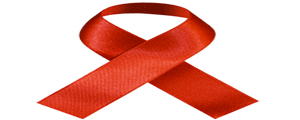
INTERNATIONAL humanitarian medical provider, Medecins Sans Frontieres/Doctors Without Borders (MSF), has challenged African governments to make HIV and Aids “treatment for all” a reality.
By Phyllis Mbanje
This follows the release of new World Health Organisation (WHO) guidelines compelling government to immediately administer anti-retroviral treatment once a person has tested HIV-positive.
Congratulating WHO for the initiative, MSF warned that turning this new recommendation into reality would require increased support from donors and governments.
“Test and treat can turn the tide on HIV, but for it to work as a tool to control the epidemic it will require drastic changes and greatly increased investment,” MSF southern Africa medical director Tom Ellman said.
Ellman also said HIV care had to move out of clinics and into the communities with mobilised and empowered people living with HIV and Aids.
“At the United Nations (UN) last week, world leaders agreed to a Sustainable Development Goal (SDG) to make Aids history within 15 years, but they are going to need to show that they’re serious about it. Nobody’s going to end Aids with business as usual,” he said.
Over the last 10 years, one third of people who were diagnosed with HIV, but not eligible to start treatment, never returned to the health facility
- Chamisa under fire over US$120K donation
- Mavhunga puts DeMbare into Chibuku quarterfinals
- Pension funds bet on Cabora Bassa oilfields
- Councils defy govt fire tender directive
Keep Reading
“In order to reach as many people as possible, simplified models of care and self-management strategies are needed that allow people to take more control over their own treatment and care,” Marc Biot, MSF’s operational co-ordinator for HIV said. “It’s no longer only a question of when to start people on treatment, but also how to help people stay on treatment for life and to maintain ‘undetectable’ levels of virus in their blood,” he warned.
MSF started providing HIV treatment to people in developing countries in 2000, and today more than 200 000 people receive treatment through various programmes.
Health minister David Parirenyatwa said the government is targeting zero HIV and Aids-related deaths in 15 years’ time.
Speaking at the Cimas 70th Anniversary Health Expo in Belgravia, Harare, on Saturday, Parirenyatwa said considerable success had been achieved in reducing deaths from malaria and HIV and Aids.
He said there was a time when the HIV infection rate was at 30 people in every 100 between the ages of 15 to 49 being infected.
“Government is targeting 2030 as the year by which there will be no Aids deaths,” he said.











